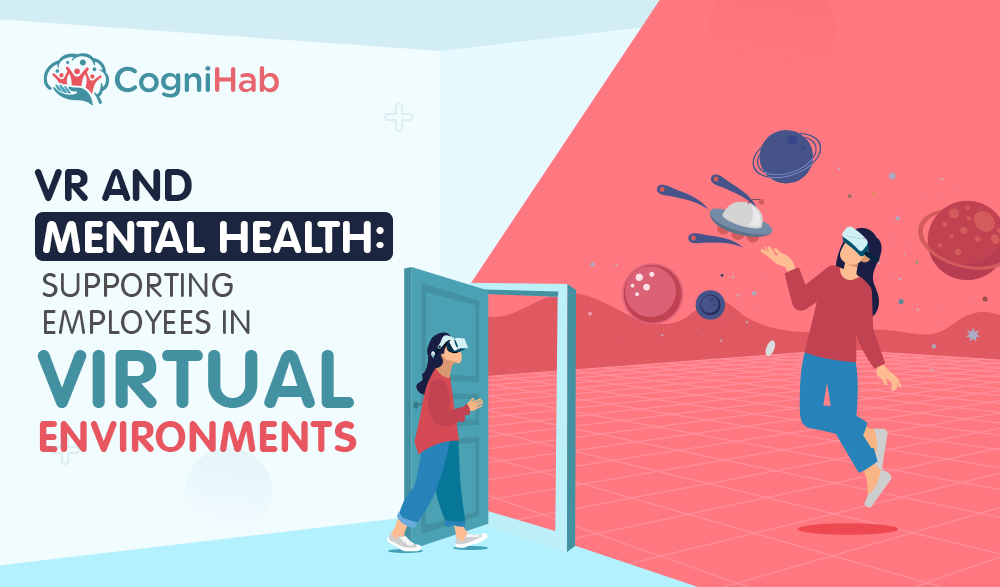Cognitive Behavioral Therapy for Depression: How it Works and What to Expect
Are you experiencing feelings of despair or hopelessness? Do you find yourself worrying and feeling overwhelmed by bad thoughts all the time? If this is the case, cognitive behavioural therapy (CBT) may be just what you need to break free from depression.
In this piece, we'll examine how CBT works, why it's a successful depression treatment, and what to expect throughout your sessions. Prepare to take charge of your mental health and begin enjoying a happy life!
Introduction to Cognitive Behavioral Therapy (CBT) for Depression
CBT is a style of psychotherapy that focuses on recognising and modifying harmful thought patterns and behaviours that contribute to mental health problems. CBT is an effective depression treatment, and studies have shown that it can help alleviate symptoms and avoid relapse.
CBT for depression usually consists of weekly sessions with a therapist. You will learn about how your ideas and behaviours affect your mood throughout these sessions, and you will practice methods to modify negative thinking and unhealthy behaviours.
CBT can also be used to treat other mental health issues like anxiety reduction, eating disorders, and substance abuse.
If you are thinking about CBT for depression, it is critical to identify a therapist who has experience treating this illness. In order to see results, you need also be willing to commit to attending weekly sessions for several months.
How Does CBT Work for Treating Depression?
Cognitive behavioural therapy (CBT) is a type of psychotherapy that assists people in changing negative thoughts and behaviour patterns. CBT has been shown to be an effective depression treatment.
CBT works by assisting patients in identifying and correcting the negative thoughts and beliefs that are contributing to their depression symptoms. When these mental patterns are changed, patients usually see a reduction in their symptoms.
CBT normally comprises 10–20 therapy sessions. The therapist will help the patient discover and change unfavorable ideas and beliefs during these sessions. Additionally, the therapist might teach the patient coping and problem-solving skills.
If you are considering CBT for social anxiety and depression treatment, it is critical that you find a skilled therapist with experience in treating depression. You can get referrals from your doctor or look for therapists online.
Common Techniques Used in CBT
CBT is a sort of talk therapy that assists people in identifying and managing negative thoughts and behaviours. CBT is founded on the idea that our thoughts and feelings have an impact on our behaviour. As a result, we can alter our behaviour by altering our thoughts.
Cognitive restructuring is one of the most used CBT strategies. This entails recognising negative or erroneous beliefs, confronting them, and replacing them with more realistic and optimistic thinking.
For example, if you're feeling bad because you didn't get the promotion you desired at work, a therapist may help you confront the thinking "I'm a failure" by asking questions such as "Is there evidence to support this belief?" or "What are some other possible explanations for why you didn't get the promotion?"
Exposure treatment is another prominent CBT approach. This entails gradually exposing yourself in a safe and controlled atmosphere to dreaded circumstances or triggers. This can help to alleviate your tension or fear in certain instances.
If you are afraid of flying, for example, your therapist may have you sit in a chair while watching videos of planes taking off and landing. As you gain confidence with this degree of exposure, you may be able to board a simulated plane and, eventually, an actual plane.
VR relaxation, stress management, problem-solving skills training, and psychoeducation (learning about) are among prominent CBT strategies.
What to Expect from CBT Therapy?
CBT is a form of psychotherapy that aims to assist patients in controlling their mental health by altering their thought and behavior patterns. The foundation of CBT is the notion that our thoughts, emotions, and behaviors are all interconnected and that we can alter our beliefs and actions to alter how we feel.
CBT has been proven to be a successful depression treatment, helping patients better manage their symptoms and overall quality of life. With the help of a therapist, you will use CBT to recognize negative thoughts and behaviors and swap them out with healthier ones. Additionally, you might be instructed to keep a journal or practice brand-new coping mechanisms in between sessions.
CBT normally lasts a few weeks or months, and most people notice an improvement in their symptoms after finishing treatment. If you are considering starting CBT for depression, it is critical that you choose a therapist who has experience treating this disease.
Benefits of Cognitive Behavioral Therapy
Cognitive behavioural therapy (CBT) is an effective depression treatment. It can assist you in identifying and altering negative thought patterns and behaviours that contribute to depression.
CBT is an organised type of therapy that focuses on the present rather than the past. It entails working with a therapist to discover and repair erroneous thought patterns and reality misinterpretations that are causing your depression. CBT also entails learning new, more positive ways of thinking and acting.
CBT has been demonstrated in studies to be as beneficial as antidepressant drugs in treating depression. Furthermore, CBT can help avoid depression relapses and can provide long-term benefits even after therapy is completed.
If you are considering cognitive behavioural therapy for depression, it is critical to identify a skilled therapist with depression treatment experience. To get the most out of therapy, you must also actively participate in the treatment process.
Potential Side Effects of CBT Treatment
Although cognitive behavioural therapy (CBT) is an effective treatment for depression, it, like all medicines, has the potential for negative effects. These side effects are typically modest and resolve on their own over time. The following are the most common CBT side effects:
- Headaches
- Insomnia
- Appetite changes
- Fatigue
- Nausea or stomach pain
- Muscle tension or aches
- Sweating or hot flashes
Alternatives to CBT for Depression
Cognitive behavioural therapy (CBT) is frequently regarded as the gold standard for treating depression. However, CBT is not the only therapeutic option. There are several additional viable alternatives to CBT for depression that should be considered.
Interpersonal therapy (IPT) is a popular alternative to CBT. IPT focuses on assisting those suffering from depression in improving their interpersonal interactions. This can be accomplished through developing communication and conflict resolution skills.
Problem-solving therapy (PST) is another option to CBT. PST assists persons suffering from depression in identifying and resolving specific issues in their lives that may be contributing to their illness. This could include learning how to budget or creating a support network.
There is also evidence that lifestyle adjustments can help with depression treatment. This could involve getting regular exercise, eating a balanced diet, and sleeping enough. While these adjustments may not be as noticeable as some of the other treatments on this list, they can have a long-term impact on your mental health and well-being.
Conclusion
Depression awareness is also crucial to let patients know that they're not alone. Cognitive-behavioral therapy has been shown to be an effective treatment for depression, with outcomes in as little as a few weeks. This method assists patients in understanding their ideas and how they influence their behaviours and emotions.
Patients learn how to recognise negative thought patterns, effectively confront them, and replace them with more positive ones. Individuals can achieve long-term escape from cycles of depressive feelings by adopting the concepts gained in CBT sessions over time.






